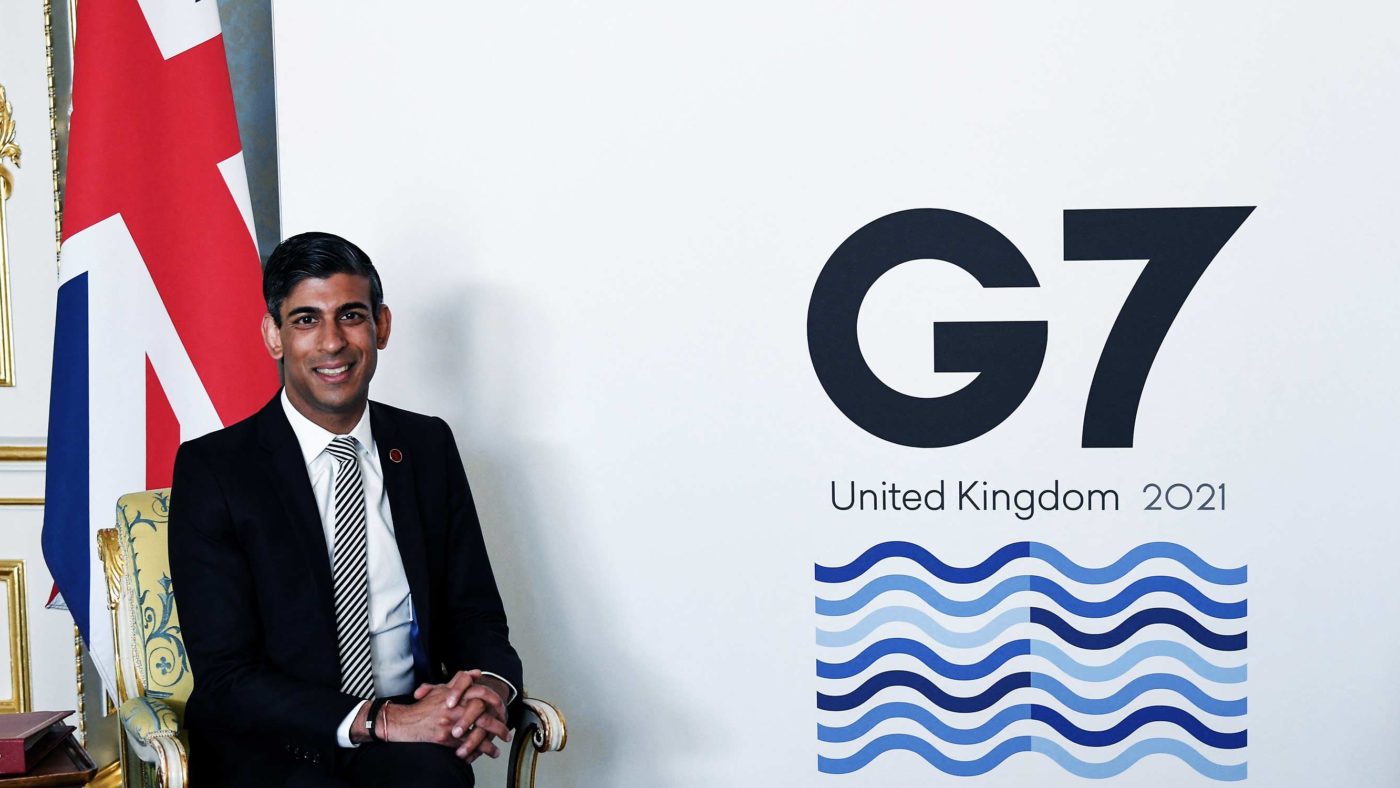Amid all the spending announcements and fanfare ahead of today’s Budget, not much has been said about the Government’s plans to cede some of that hard-won post-Brexit sovereignty by signing up to a global tax cabal. The global minimum tax will bind the UK to an inefficient corporate tax. It could even cost the UK up to £7bn in lost annual tax revenue, as companies shift their profits elsewhere.
The new tax proposal consists of two pillars. The first of which adds a special tax on profits over 10% for companies with an annual revenue of over €20 billion, altering the recipient country for the taxes of many large businesses. This was designed with digital companies in mind, but would apply to all companies, excluding regulated financial services. The second pillar introduces a global minimum tax of 15% on multinational companies with annual revenues of over 750 million euros.
The second pillar is supposed to prevent jurisdictions competing for business by lowering their tax rates, with Rishi Sunak praising it for ensuring ‘large global players pay their fair share wherever they do business’. However this is unlikely to be the case. Not all jurisdictions will agree to the tax reforms, with low tax countries such as Ireland and Hungary hesitant to join, and Joe Biden will struggle to pass the minimum tax through Congress. This means that any country that has not agreed to this deal will be at a significant advantage, able to attract businesses from those jurisdictions bound to the agreement. It will not stop countries competing for lower tax rates, it will just rule the UK out of the competition.
Likewise, US Treasury Secretary Janet Yellen’s claim that the minimum tax would prevent a ‘race to the bottom on corporate taxation’ is based on a fundamentally shaky premise. The idea that lowering corporate taxes will weaken countries’ public finances is deeply flawed. Just look at the UK, where the main rate of corporation tax has fallen from 28% in 2010 to the current rate of 19%. This has coincided with an increase in revenue from corporate tax as a percentage of GDP, which has accelerated since the rate fell below 21%. This suggests two things: one, reducing corporate taxes doesn’t necessarily mean lower revenues and two, introducing a binding, static rate would be economically inefficient.
Not only is a global minimum tax counterproductive, it is incompatible with much of Rishi Sunak’s economic agenda. Government headline policies such as the ‘super-deduction’ and the eight new free ports would have to be halted. While this will prevent investment from 2023 onwards, when the minimum tax is intended to begin, it will also discourage investment in anticipation of the change. This will in turn dampen the potential for those policies to be, in the Chancellor’s own words, a ‘key driver for economic recovery’.
People voted to leave the EU in part because of sovereignty. We opposed the notion that politicians in other countries should decide our laws. It seems that all we have done is hand this same power over to bureaucrats elsewhere.
All is not lost, however. A new report from the Adam Smith Institute ‘Draining our pockets: how the global tax cartel could cost Britons billions’, proposes a series of ways to reduce the negative impact of a minimum tax on the UK including: setting the rate in proportion to, but lower than, the global average tax rate and permitting full expensing of capital.
Since he became Chancellor, Sunak’s hands have been tied by the demands of Covid-19, with far more spending and borrowing than he would ever have sanctioned in normal times. Now the economy is starting to recover from its pandemic pummeling, it would be entirely counter-productive to tie his hands once more with this ill-conceived tax plan.
Click here to subscribe to our daily briefing – the best pieces from CapX and across the web.
CapX depends on the generosity of its readers. If you value what we do, please consider making a donation.


